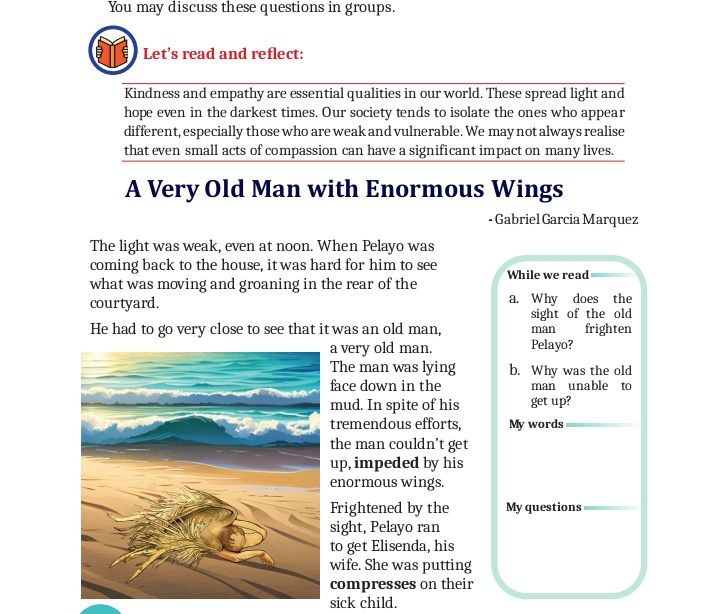Study Note on the Poem "Obituary" by A. K. Ramanujan
Introduction
"Obituary" is one of A. K. Ramanujan’s most well-known and frequently anthologized poems. As a modern Indian poet writing in English, Ramanujan blends personal memory, cultural identity, and irony to reflect on the complexity of familial relationships and postcolonial Indian life. This poem appears in his collection Relations and is a poignant yet ironic account of the speaker’s father’s death and its aftermath. The title itself sets the tone—a cold, detached term typically associated with formal newspaper notices, which contrasts sharply with the personal and emotional content of the poem.
Summary
The poem begins with a list of what the father left behind after his death: debts, daughters, a bedwetting grandson, and an old house. There is no mention of wealth or proud legacy. Instead, the inheritance is deeply ironic and burdensome. The speaker notes how his father’s obituary appeared in the newspaper, not as a tribute but as a formality—among columns about astrology and advertisements. This positioning suggests a lack of significance and sentimentality. Ramanujan subtly critiques the hollow customs of Indian mourning, where traditional gestures and rituals fail to bring any genuine emotional connection or closure.
The poem then reflects on the father's life—his failures, his obsessions, and his spiritual endeavors. He was a man caught between religious rituals and practical failures. Even in death, he becomes a part of the cycle of Indian traditions that dictate mourning, rituals, and the continuity of life. The speaker, however, views this legacy with a tone of irony and detachment. The father becomes more important in death than in life, remembered mainly through rituals and recurring conversations. This disconnect hints at unresolved emotional gaps between the father and the speaker.
Themes
The central theme of the poem is the ambiguity of familial relationships, particularly between father and son. Ramanujan explores the gap between emotional expectations and lived reality. The son does not express grief directly; instead, he catalogs the father’s shortcomings and the ironic legacies he left behind. This lack of overt sentimentality is striking and underscores the emotional distance in the relationship.
Another major theme is the burden of tradition. The father’s death triggers a chain of rituals, customary expectations, and social obligations. These rituals are depicted as routine and empty, lacking any real emotional resonance. Through this, Ramanujan questions the value and relevance of traditional customs in the modern world.
The poem also touches on loss and memory, not as romanticized recollections but as complicated, imperfect residues of a life. The father is remembered not through accomplishments but through debts and habits, through rituals rather than stories of love or virtue.
Poetic Devices
Ramanujan uses irony masterfully throughout the poem. The very structure of the obituary, traditionally meant to honor a life, becomes a catalogue of failures and burdens. This irony reflects the speaker’s critical view of both his father and the cultural norms surrounding death.
The poem is rich in imagery, particularly domestic and mundane images, such as the house left behind, the grandson wetting his bed, and the obituary in a newspaper among astrology columns. These ordinary images make the poem grounded and relatable, yet they also carry symbolic weight.
Enjambment is used effectively, where lines flow into each other without punctuation, mirroring the continuous and inescapable influence of the father’s life and death on the family. This stylistic choice also suggests a sense of breathlessness and continuity—how one life spills into another, how one generation's mistakes and rituals become the next's inheritance.
Ramanujan employs alliteration and consonance subtly to create rhythm and cohesion. There is also a quiet use of metaphor, particularly in the contrast between the physical remnants of the father’s life and the spiritual or emotional absence he left behind.
Tone and Voice
The tone of the poem is detached, ironic, and at times bitter. The speaker does not mourn in a conventional way but offers a clinical, almost cynical commentary on his father’s death. This voice reflects not just personal emotions but also a broader cultural critique, where the rituals of mourning fail to address the real emotional voids within families.
Conclusion
"Obituary" by A. K. Ramanujan is a layered, introspective poem that offers a unique and complex look at death, memory, and familial obligation. Through a blend of irony, personal reflection, and cultural commentary, Ramanujan breaks away from sentimental portrayals of death and instead presents a deeply human and honest response to the loss of a flawed father. It stands out as a brilliant example of modern Indian poetry in English, where traditional themes are approached with fresh insight and artistic restraint.




Comments
Post a Comment
Please share your feedback and questions